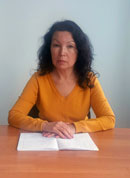The Islamic Republic of Iran (IRI) is a key geo-political figure in the Middle East, which plays an important role in stabilizing the world order, and in the military and political settlement in the region. Iran’s geographical location allows it to be in the epicenter of overlapping strategic geopolitical objectives and ambitions of global and regional forces. The situation in the Middle East can be best described as the widening gap between Shiite Iran and Sunni Persian Gulf, and the relations with the West are undergoing a long-term persistent antagonism and confrontation.



